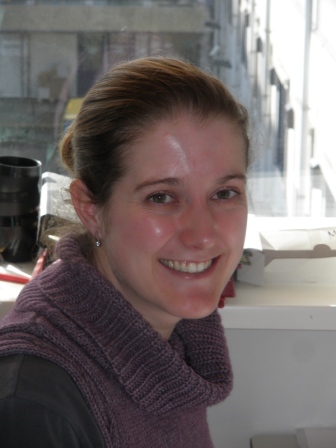Research Interests
Role of the G2 restriction point in tumor development and behavior
 Tanja van Harn |
 Floris Foijer |
|
An important barrier to limitless proliferation is the G1/S checkpoint that prevents S-phase entry in response to oncogene activation, differentiation signals, DNA damage, cell-cell contact and mitogen deprivation. The retinoblastoma proteins pRB, p107 and p130 are essential components of this machinery and, indeed, genetic or functional loss of pRB is a mandatory step in human cancer. Uncontrolled proliferation is also prevented by apoptosis and it is generally believed that loss of apoptosis is mandatory to unleash the increased proliferative capacity of G1/S-checkpoint-defective cells.
However, we recently identified a third proliferation barrier in primary mouse embryonic fibroblasts (MEFs) that were devoid of the retinoblastoma proteins (Dannenberg et al., 2000) and were made resistant to apoptosis by ectopic expression of Bcl2. In the absence of mitogens, TKO-Bcl2 MEFs can enter and complete S phase, but then activate a second checkpoint that arrests them in G2 (Foijer et al., 2005). G2 arrest is mediated by up-regulation of the cell cycle inhibitors p21CIP1 and p27KIP1 that inhibit the mitotic cyclins A and B1. This inhibition is reversible by re-addition of serum and the G2 arrest therefore behaves as a restriction point (Foijer and Te Riele, 2006). G2 arrest could also be alleviated by inactivation of p53, overexpression of c-MYC or expression of oncogenic RASV12, providing a novel rationale for the synergism between loss of RB and these events in tumorigenesis (Foijer et al., 2008).
Re-entry into the cell cycle upon serum re-addition was accelerated by caffeine or the CHK2 inhibitor UCN01, suggesting that a DNA damage response contributed to G2 arrest. Indeed, we observed that G2 arrested cells had accumulated double-stranded DNA breaks that partially sustained upon entry into mitosis. Moreover, mitotic chromosomes showed a ‘railroad’ appearance indicative of defects in centromeric cohesion (Van Harn et al., 2010). Finally, TKO-Bcl2 cells that had transiently been cultured in the absence of mitogens showed chromosome gains and losses. These observations indicate that loss of pocket proteins not only drives uncontrolled proliferation but can also cause genomic instability, which may contribute to tumor progression.